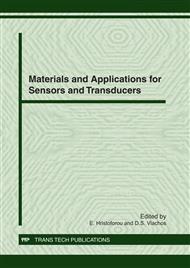p.155
p.159
p.163
p.167
p.171
p.176
p.181
p.190
p.194
The Performance Management after Mergers and Acquisitions in High Technology Manufacturing Business
Abstract:
This article aims to determine the main factors that affect the performance management strategy in high technology manufacturing Greek companies after a merger or an acquisition. For this purpose the article is based not only on the latest literature in performance management strategy, but also to interviews of executive members of manufacturing Greek companies and to the primary results of a quantitative analysis in some Greek companies that operate in manufacturing business and had in the near past a change in their environment due to a merger or acquisition. Findings indicate factors such as leadership, learning, teamwork and recognition as the ones that main affect the performance management of the company.
Info:
Periodical:
Pages:
171-175
DOI:
Citation:
Online since:
November 2011
Keywords:
Price:
Сopyright:
© 2012 Trans Tech Publications Ltd. All Rights Reserved
Share:
Citation:


